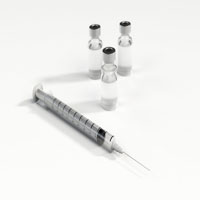Knowledge of hepatitis B virus infection and vaccination status among college of medicine students in Enugu State, south-east, Nigeria

All claims expressed in this article are solely those of the authors and do not necessarily represent those of their affiliated organizations, or those of the publisher, the editors and the reviewers. Any product that may be evaluated in this article or claim that may be made by its manufacturer is not guaranteed or endorsed by the publisher.
Accepted: 18 September 2020
Authors
Background: College of Medicine students are at high risk of contracting hepatitis B since they come in contact with infected patients during their training program and are expected to have proper knowledge of the hepatitis B virus infection and know their vaccination status.
The aim of the work: To determine the level of knowledge of hepatitis B virus and the vaccination status among college of medicine students in Enugu State, South-East Nigeria. Methods: A school-based descriptive cross-sectional study was carried among college of medicine students at ESUT College of Medicine, Enugu State. A pretested self-administered questionnaire was used to collect information from 437 students. Data analysis was carried out using the Statistical Package for Social Sciences version (SPSS) 22 and a p-value of 0.05 was used to determine statistical significance.
Results: The mean age of the respondents was 22.3 ± 3.7 years and the majority were single (91.1%) and female (54.7%). A high proportion (68.2%) of the students had a good knowledge of HBV while a minority (20.0%) were aware of their vaccination status. Lack of vaccination programs for students (36.6%) and poor awareness of HBV vaccine for adults (32.5%) were the commoner reasons for non-vaccination. While final year students, (95% CI=1.73-28.92), respondents who consume herbal concussions (95% CI= 0.98-2.96) and those who were at least 30 years old (95% CI=0.32-5.16) were 7.1, 1.7 and 1.3 times respectively more likely to have good knowledge of HBV disease, females (95% CI=0.30-0.83) and respondents who consumed alcohol (95% CI= 0.32-0.89) were about twice less likely to have poor knowledge of HBV than males and non-alcohol consumers.
Conclusion: Although most of the students had a good knowledge of HBV infection their vaccination status was low indicating the need for government to make a policy that would mandate that all college of medicine students should get vaccinated as part of the admission process.
Hospital Consultant and University Lecturer
Department of Community Medicine, Registrar
Department of Community Medicine, Registrar
Department of Community Medicine and Registrar






